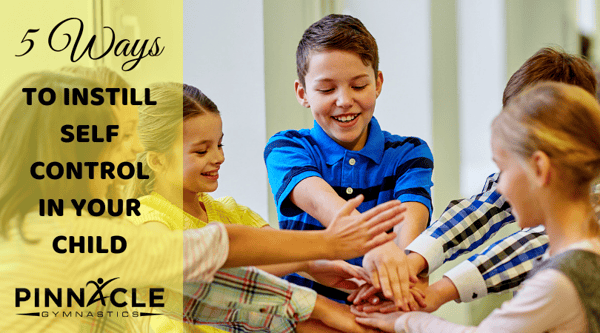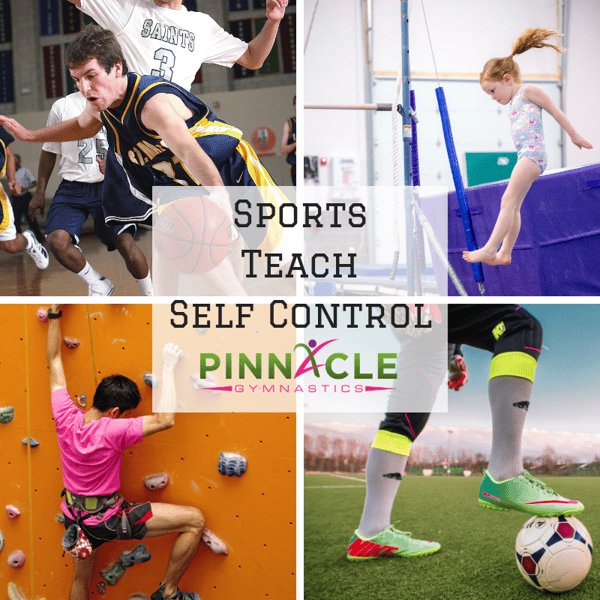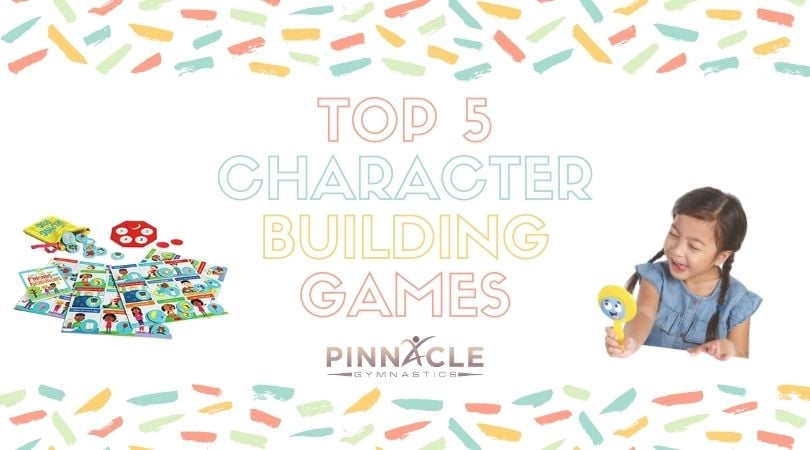Self control is the ability to control yourself. In particular, it relates to the ability to control one's emotions and desires (or the expression of them) in one's behavior: especially in difficult situations. Like most other pillars of character, self control is a learned trait. It is observed, taught, reminded, and acted out to form pathways in the brain to reduce the desire to respond impulsively and instead react in a way that will help to achieve long-term goals. There are many ways to teach kids self control. However, consistency and modeling are the keys to lasting progress.

Ask Your Child What Self Control Is
This sounds simple, and in fact, you might get a simple response back. However, most kids do know what self control is and can even show examples of showing self control. Listening to your child's definition of self control will open conversation alleys to expand upon the topic with them. Treating your child as an empowered human will also help reinforce that they have the knowledge and control to exercise self control.

Teach Your Child How To Control Her Body
Be specific. When we teach our children exactly what we expect in different situations, it is easier for them to show self control. Classrooms have specific key words to get children to line up, be quiet, sit down, etc. Have you heard your child's teacher or coach use phrases like "criss cross applesauce" or "catch a bubble in your mouth"? These are examples of children being taught how to control their bodies. You don't have to be creative to teach your child where their arms belong at the dinner table - although creative phrases do sometimes help new concepts stick!
Teach Your Child How To Control His Emotions
In my home, we talk about appropriate and inappropriate reactions. Children have a natural tendency to dramatize, well, everything. From picking out cups in the morning to filling the pitcher at dinner, and everything in between, children frequently react as though things are the end of the world. Just as children need to be taught to control their bodies, they need modeling of appropriate reactions to a variety of different situations - both positive and negative. Just like screaming is not a way to celebrating, throwing yourself on the ground is not a way to complain.
.png?width=600&name=Teaching%20Children%20to%20Control%20Their%20Emotions%20(Without%20Emojis).png)
Call It Out When You See It
"That is an inappropriate reaction" is a common phrase used in my home. Another is, "try again". Often, kids know they snapped and can self-correct their out of control behavior. My first choice is always self-correction. By simply asking them to try again, I have both acknowledged that their initial reaction was unacceptable and that they have the knowledge and power to choose a better way to handle the situation.
Enroll Her In A Sport
Sports teach self control in many different ways. First, sports require physical skills that require the body to do certain things at certain times. Consider learning how to do a cartwheel: many people start with the phrase hand, hand, foot, foot. This simple phrase is teaching kids to place each limb on the ground in a specific order. Second, sports require mental discipline. On the soccer field, games get physical, even at a young age. When your child is being pushed or bodied off of the ball, they have to keep their cool. They learn to hold their ground. When fouls occur - athletes learn not to react to the foul by getting upset, but instead using it for fuel to help their team have success on the next play of the game.
Self Control Is A Practice
Self control is a challenging concept as an adult. Imagine how hard it must be for kids? I have had years and years of practice and still lose my cool from time to time. Small set backs are not to get you down. Instead, use them as learning experiences that will train your brain to work toward your long term goals instead of acting in the moment.
Learn More:





